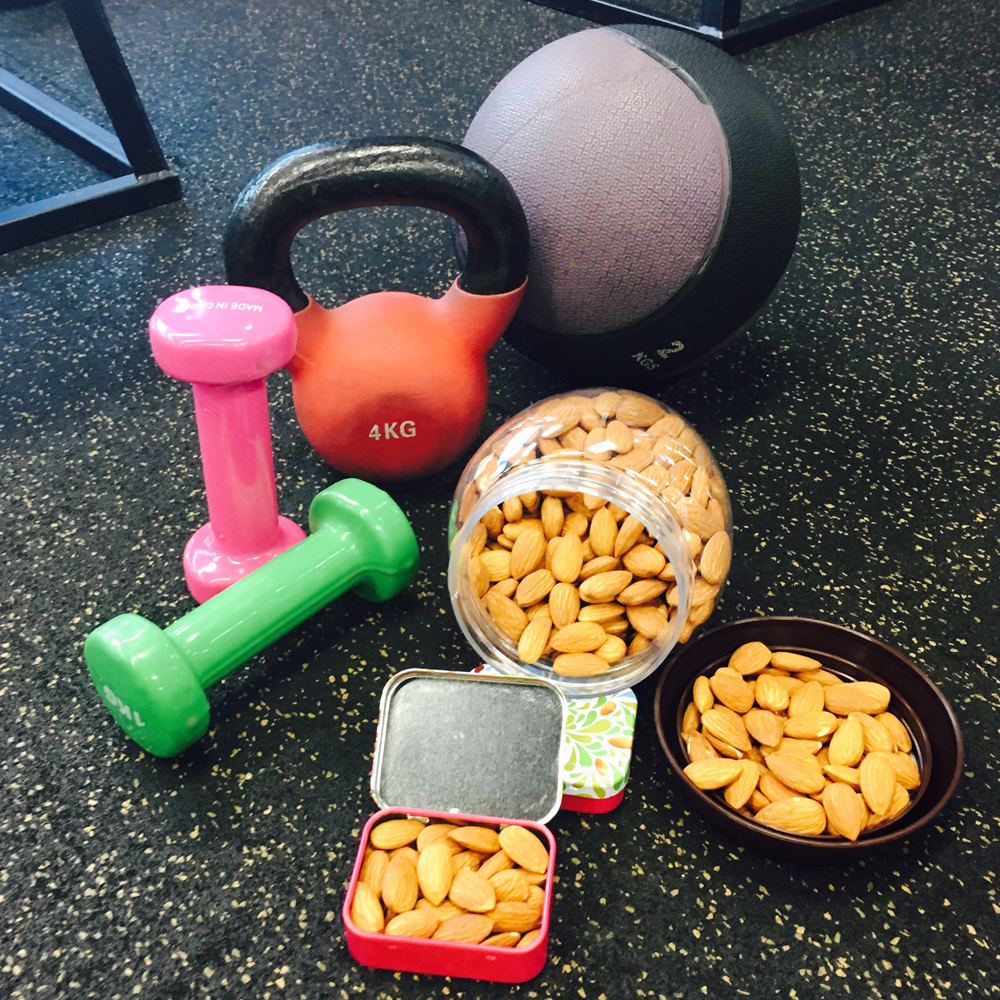Engaging in exercise promotes a healthful lifestyle, but even when performed correctly, exercise causes fatigue and muscle damage. Recovery from exercise is important because it leads to muscle gain and improved fitness over time. A new study 1 involving people who exercise occasionally (less than three times per week) demonstrated that snacking on almonds reduced feelings of fatigue and tension, increased leg and lower back strength during recovery, and decreased muscle damage during the first day of recovery.
David C. Nieman, DrPH, FACSM, Professor and Principal Investigator, Human Performance Laboratory, Appalachian State University, led this novel research, supported with funding from the Almond Board of
California. Dr. Nieman’s team wanted to see if an almond snack compared to a high-carbohydrate cereal
bar snack would improve inflammation and recovery in adults engaging in 90-minute exercise sessions.
“What we found tells us definitively that almonds should be added to sports nutrition strategies to help
people recover better from exercise,” explained Dr. Nieman.
“Almonds are food for fitness. Carbs get most of the attention when it comes to fueling for exercise, but almonds offer a nutrition package, including good unsaturated fats, the antioxidant vitamin E, and proanthocyanidins (class of polyphenols, which are protective compounds in plants) that help explain the beneficial outcomes in our study.” One serving of almonds (28g) has 13 g of good unsaturated fat and only 1 g of saturated fat.
Study Design
In this trial, researchers included 64 healthy adults with an average age of 46 years. Participants were included if they exercised less than three (3) sessions per week. The experiment used a randomized,
parallel group design, where treatment participants (n = 33) ate 57 g (2 ounces) almonds daily, split
between morning and afternoon, for 4 weeks. Control participants (n = 31) consumed a calorie-matched
cereal bar, also in split doses.
Participants submitted blood and urine samples and responded to mood and muscle-soreness
questionnaires. Height, weight, and body composition were measured. Then, people in the study were
instructed to perform muscle function tests (exercises), and once complete, they initiated the 4-week
supplementation period—taking either almonds or cereal bars. At the conclusion of 4 weeks,
participants submitted dietary intake records, blood and urine samples, and another set of
questionnaire responses. Muscle function testing was repeated and then participants engaged in 90-
minute eccentric exercise bouts comprising 17 different exercises.
👉 Click here to read the latest Gujarat news on TheLiveAhmedabad.com



